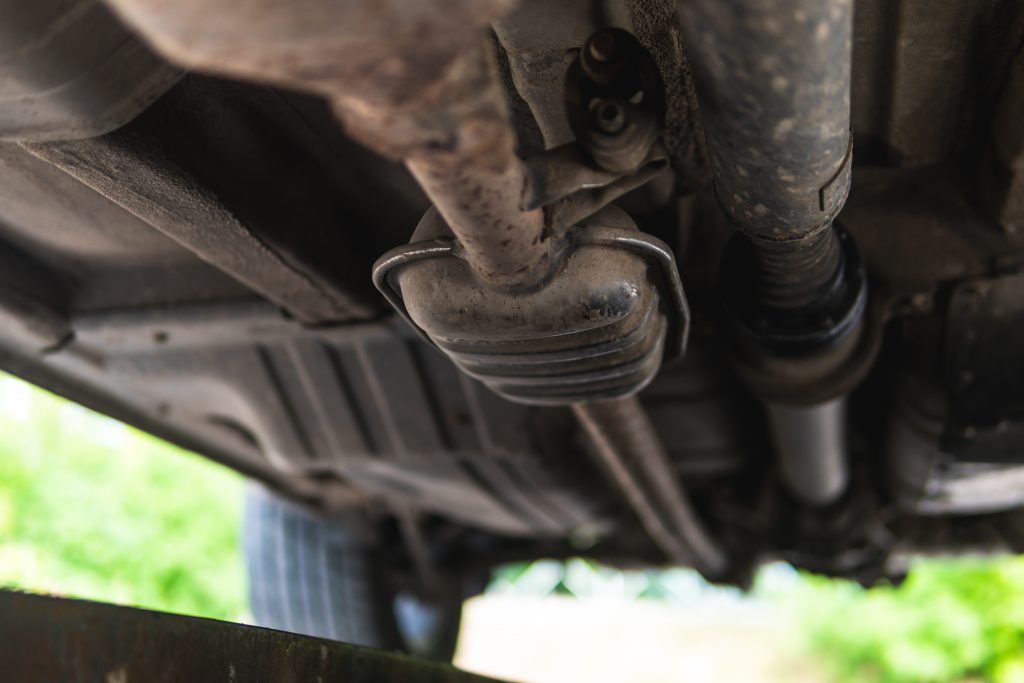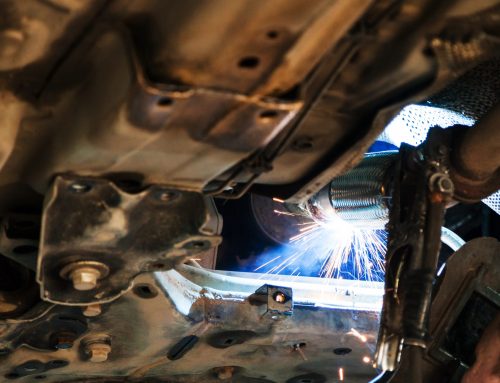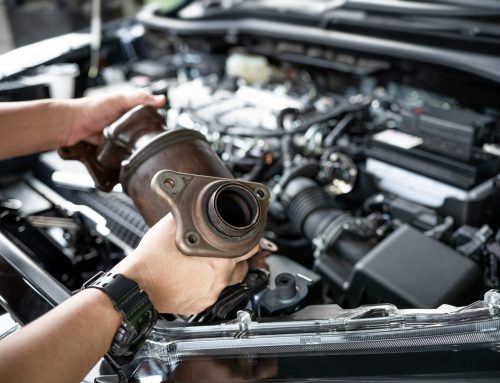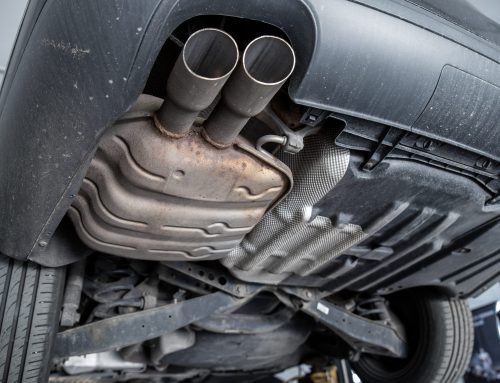
What Happens If a Catalytic Converter Goes Bad? 5 Things You Should Know
Your vehicle’s catalytic converter plays a critical role in reducing harmful emissions and ensuring optimal engine performance. But what happens when it fails? Whether you’re cruising through Somers, WI, or tackling your daily commute, a malfunctioning catalytic converter can spell trouble. Let’s dive into the five key things you need to know about catalytic converter issues, and how to identify and address them before they escalate.
1. How to Know If Your Catalytic Converter Is Bad
A failing catalytic converter often presents clear warning signs. Recognizing these early can save you time, money, and frustration:
- Decreased Fuel Efficiency: One of the first indicators is a noticeable drop in your car’s fuel economy. A clogged catalytic converter restricts exhaust flow, causing your engine to work harder and burn more fuel.
- Check Engine Light: If your vehicle’s on-board diagnostics detect an issue, the check engine light will illuminate. This is a strong indicator of catalytic converter problems.
- Poor Acceleration: Difficulty accelerating or sluggish engine performance can result from a failing catalytic converter obstructing exhaust flow.
- Unusual Smells: A sulfuric or rotten egg odor from your exhaust is a classic symptom of catalytic converter trouble.
- Rattling Noises: Loose components within the converter can cause a rattling sound, especially during ignition or acceleration.
If you notice any of these signs, it’s essential to consult an experienced mechanic like those at Dave’s American Discount Muffler near Somers, WI, to diagnose the issue.
2. Catalytic Converter Failure Signs
Catalytic converter failure can stem from various causes, including:
- Excessive Carbon Build-Up: Over time, unburned fuel can accumulate inside the catalytic converter, leading to clogs and restricted airflow.
- Overheating: Prolonged engine misfires or fuel system malfunctions can cause the converter to overheat, damaging its internal components.
- Physical Damage: Impacts from road debris or potholes common in the Somers area can physically damage your catalytic converter.
- Contaminants: Oil or antifreeze leaks can coat the catalytic converter, rendering it ineffective.
Regular maintenance, such as oil changes and inspections, can help prevent these issues and extend the life of your converter.
3. How a Bad Catalytic Converter Impacts Engine Performance
Ignoring catalytic converter issues can lead to significant engine performance problems. Here’s how:
- Reduced Power: A clogged or damaged catalytic converter disrupts the exhaust system’s flow, causing backpressure that limits engine power.
- Increased Emissions: A failing converter cannot effectively reduce harmful gases, potentially resulting in failed emissions tests.
- Engine Stalling: In severe cases, the backpressure can cause your engine to stall or fail to start altogether.
These problems are not just inconvenient but can lead to costly repairs if left unresolved. At Dave’s American Discount Muffler, our skilled technicians can perform catalytic diagnostics to pinpoint the issue and recommend the best solution.
4. How to Fix a Bad Catalytic Converter
Repairing or replacing a catalytic converter depends on the severity of the issue. Here are the most common solutions:
- Cleaning the Converter: If carbon build-up is the culprit, professional cleaning may restore its functionality.
- Repairing Related Systems: Addressing the root cause, such as fixing an engine misfire or replacing faulty oxygen sensors, can prevent further damage.
- Replacing the Converter: In cases of severe damage, a replacement is necessary. Although this can be costly, ignoring the problem can lead to even higher expenses.
At Dave’s American Discount Muffler near Somers, WI, we offer reliable and affordable catalytic converter repair and replacement services. Our team will guide you through your options and ensure your vehicle meets emissions standards.
5. Catalytic Diagnostics: Why Professional Help Matters
Diagnosing a failing catalytic converter requires specialized equipment and expertise. At Dave’s American Discount Muffler, we use advanced diagnostic tools to:
- Identify specific issues within your exhaust system.
- Pinpoint related problems, such as faulty sensors or leaks.
- Provide accurate repair estimates to avoid unnecessary expenses.
By entrusting your vehicle to professionals, you can ensure the issue is resolved correctly and efficiently.
Why Choose Dave’s American Discount Muffler in Somers, WI?
With over 30 years of experience, Dave’s American Discount Muffler is your go-to destination for catalytic converter repairs and diagnostics in the Somers area. Our skilled mechanics are committed to delivering high-quality service at competitive prices. Here’s what sets us apart:
- Comprehensive Auto Services: From mufflers and exhaust systems to brakes and engine diagnostics, we’ve got you covered.
- Customer-Centric Approach: We prioritize your satisfaction and safety, providing transparent communication and reliable repairs.
- Convenient Location: Located just a short drive from Somers, WI, we’re easily accessible for all your auto repair needs.
- Affordable Solutions: We understand the importance of cost-effective repairs without compromising quality.
Pro Tips for Maintaining Your Catalytic Converter
Preventing catalytic converter failure starts with proactive maintenance. Here are five tips to keep your vehicle running smoothly:
- Address Engine Problems Promptly: Fixing issues like misfires or fuel system malfunctions can prevent damage to the catalytic converter.
- Use Quality Fuel: Opt for high-quality gasoline to reduce carbon build-up and protect your converter.
- Schedule Regular Maintenance: Routine inspections and maintenance services, such as those offered at Dave’s American Discount Muffler, ensure your vehicle stays in top condition.
- Avoid Short Trips: Frequent short trips can prevent your converter from reaching the temperatures needed to burn off deposits.
- Monitor Warning Signs: Don’t ignore unusual sounds, smells, or dashboard warnings; early action can prevent expensive repairs.
FAQs
Q: How long does a catalytic converter last?
A well-maintained catalytic converter can last 100,000 miles or more. Regular maintenance and addressing engine problems early can extend its lifespan.
Q: Can I drive with a bad catalytic converter?
While it’s possible to drive with a failing catalytic converter, it’s not recommended. Doing so can lead to engine damage, increased emissions, and costly repairs.
Q: How much does it cost to replace a catalytic converter?
The cost varies depending on your vehicle’s make and model. At Dave’s American Discount Muffler, we strive to offer affordable replacement options tailored to your needs.
Why Understanding Catalytic Converter Issues Matters
Knowing how to know if your catalytic converter is bad is crucial for maintaining your vehicle’s performance and safety. From recognizing catalytic converter failure signs to addressing engine performance problems, staying proactive can save you time and money. If you’re in Somers, WI, and need catalytic diagnostics or repair services, trust the experts at Dave’s American Discount Muffler. Call us today at 262-656-1017 or visit our website to schedule an appointment.




